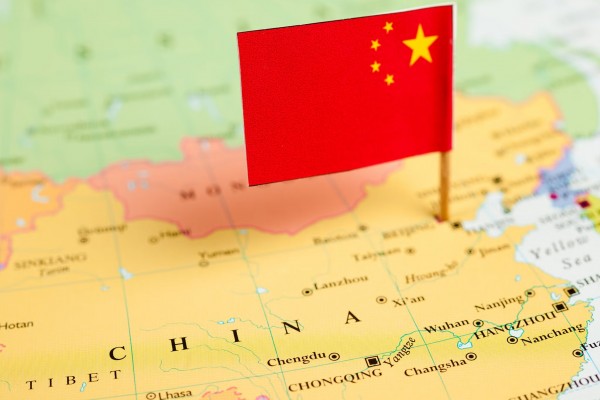Review № 12 of Chinese Antitrust News from the Experts of the BRICS Competition Centre
- SAMR releases legislative plan for 2023
- CAC Releases Draft Rules for Regulating Services Similar to ChatGPT
- Gan Lin on regulating the digital economy
- Chinese Vice President Han Zheng meets with CEO of Intel
- Hebei Province Updated Antitrust Compliance Guidelines
SAMR releases legislative plan for 2023
Among the goals of attracting attention, attention is focused on the implementation of competition policy and the constant improvement of the state of competition in the market. To this end, the agency will take additional measures “Regulations on Decisions on the Availability of Free Anti-Competition (Competition Review)”, as well as amending the “Regulations on Prohibition of Abuse of Property Rights in Competition”. It is also necessary to make it easier for business entities to enter the market, conduct business activities and exit the market, a voluminous business environment and “normalize” (transfer from the category of exceptional fairness to the norm) the regulation of the platform economy. To this end, the “Applied Methods for Regulating the Registration of Corporate Names” and the “Regulations on the Supervision and Regulation of the Subject Internet Platform for Compliance Management” will be prepared and updated.
Source: SAMR
CAC Releases Draft Rules for Regulating Services Similar to ChatGPT
The Cyberspace Administration has published for public consultations a draft method for regulating generative artificial intelligence. Generative AI refers to technologies that generate text, images, sound, video, code and other types of content using algorithms and models. The generated content should reflect the key values of socialism, not contain propaganda of terrorism, extremism, national discrimination, not call for the undermining of state power or the overthrow of the socialist regime. The design and training of such programs must take measures to prevent discrimination, as well as take legal responsibility for the source of the data used for training. An important obligation is the protection of users' personal data. In addition, the service provider must define the audience, circumstances of use and purpose of their services, and take steps to prevent users from becoming overly dependent on the generated content.
The need for a regulatory apparatus for this sector is becoming more and more acute. For example, Italy and Canada have already initiated investigations against ChatGPT developed by OpenAI on suspicion of unauthorized collection and processing of personal data, and the head of the administration of the Australian city of Hepburn, Brian Hood, is preparing to file a libel suit against OpenAI.
ChatGPT is not available in China, and local companies are developing their own versions of the program. Recently, following Baidu and Alibaba, its model - SenseNova - was introduced by the AI company SenseTime.
Russian translation of the document is available here.
Sources: CAC, People's Daily, People's Daily, SCMP
Gan Lin on regulating the digital economy
The head of SAMR, Lo Wen, and his deputy, Gan Lin, who is also the head of the National Antimonopoly Bureau, took part in a press conference where they answered journalists' questions about trends and prospects for regulating the digital economy. According to Gan Lin, in recent years, the antimonopoly regulation of the Internet sector has changed markedly: the agency is building a “full cycle” regulation, that is, it uses ex ante, in-process and ex post measures, and also encourages companies to create corporate compliance mechanisms in advance. SAMR is actively engaged in assessing the state of competition, improving the tools for “early” regulation and warning of possible problems, and regulates the activities of digital platforms to eliminate the corresponding risks. In addition to the high-profile fines that so attracted everyone's attention, the regulator also applies other measures: for example, it holds warning meetings and administrative seminars, and gives explanations on new rules and regulations. All this will become a stable basis for the “normalization” of the regulation of the digital economy, so that it is perceived as the norm, and not as an exceptional measure. Lo Wen added that SAMR is currently working on establishing a state platform for regulating Internet transactions.
Source: Weixin
Chinese Vice President Han Zheng meets with CEO of Intel
Chinese Vice President Han Zheng met with Intel CEO Pat Gelsinger in Beijing. At the meeting, he reaffirmed China's intention to develop a market-oriented and law-based business environment. He welcomed Intel's commitment to the Chinese market and the company's contribution to the development of China-US trade and economic cooperation, to maintain the stability of global production and supply chains. Gelsinger praised the achievements of China's economic and social development and thanked the Chinese government for its continuous efforts to improve the business environment and protect the investment rights and interests of foreign companies. He was optimistic about the prospects of the Chinese market and said that Intel will continue to increase investment and deepen cooperation with China.
Earlier, Chinese Vice Premier He Lifeng invited more multinational companies to enter the Chinese market and grow along with China's economic development. He pointed out that China will unswervingly strive to expand high-level openness, facilitate market access for foreign investors.
Source: Xinhua
Hebei Province Updated Antitrust Compliance Guidelines
Due to the recent update of the PRC Anti-monopoly Law (AML) and related legislation, the Market Regulatory Authority of Hebei Province (Northeast China) has updated its Antitrust Compliance Guidelines for Business Entities. The document contains five chapters: (1) general provisions, (2) the content of the AMA and more than 30 thematic provisions and regulations and liability for violation, (3) recognizing and suppressing anti-competitive practices, (4) the requirement to develop long-term strategies to facilitate and respond to antitrust investigations, (5) other provisions. The guide helps businesses better understand antitrust laws, prevent and mitigate the risk of infringement, encourage a culture of fair competition among businesses, and increase transparency in law enforcement.
Source: SAMR




